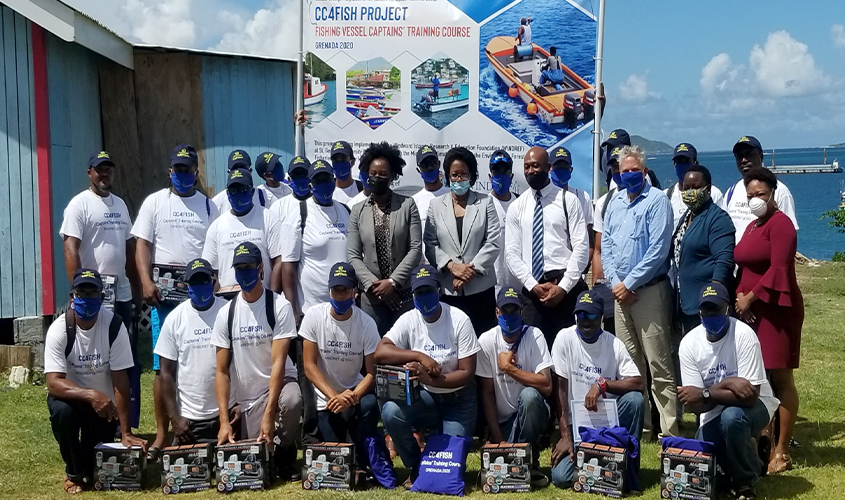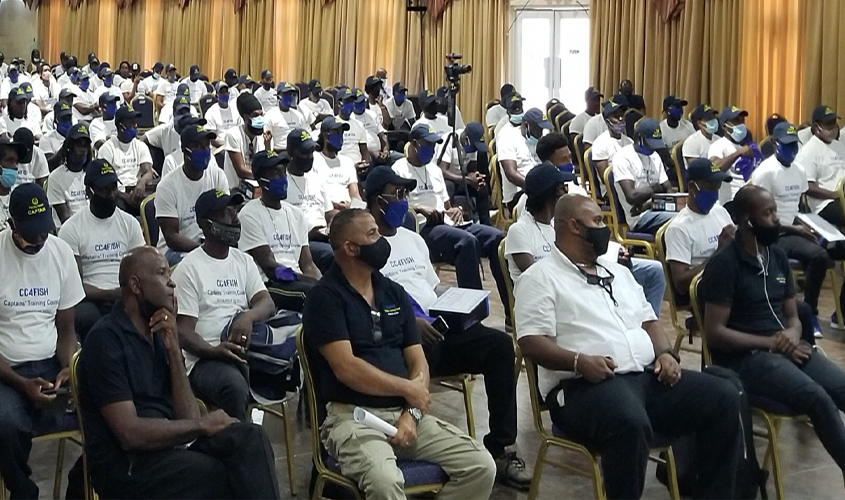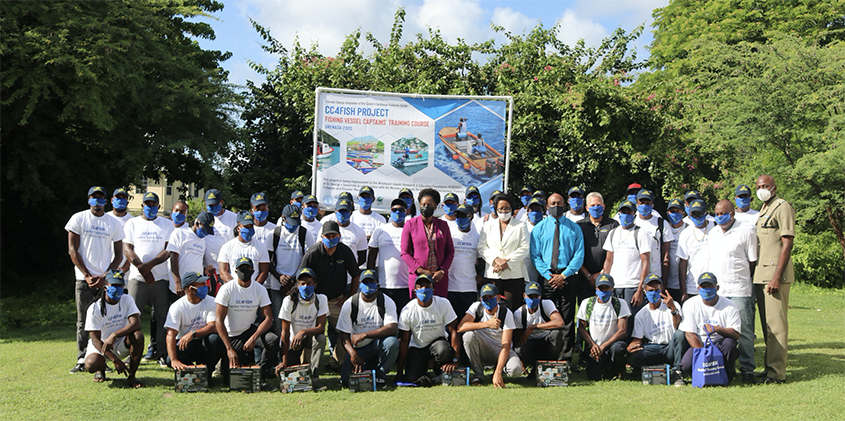
To strengthen a region that relies heavily on the fisheries sector for its food safety and livelihood, the Windward Islands Research and Education Foundation (WINDREF) recently led a rigorous 12-week training course that resulted in more than 300 men and women earning a fishing vessel captain’s permit, demonstrating their expertise in rules and safety on the seas.

WINDREF, which is based on the St. George’s University campus, carried out the project through funding from a $370,000EC grant from the Food and Agriculture Organization of the United Nations (FAO) through the Climate Change Adaptation in the Eastern Caribbean Fisheries Sector (CC4FISH) project in the Eastern Caribbean. Permits were bestowed to fishers from Grenada, Carriacou, and Petite Martinique.
“This project provided a unique public-private partnership opportunity despite COVID-19 restrictions for services by WINDREF towards regional implementation of climate change adaptation,” said Trevor P. Noël, PhD ’17, MPH ’04, deputy director of WINDREF. “The success of this program is evidenced in the fact that both the United Nations (FAO) and Grenada Government Ministries have requested further dialogue with us for future UN projects that are due to come on stream this fall. It is an exciting time for WINDREF and, by extension, St. George’s University.”
The training was set up in 12 one-week modules covering rules of the sea, safety at sea, search and rescue, seamanship and boat handling, global positioning systems (GPS), navigation, first aid, conflict resolution, fishery laws and regulations, marine protected areas, engine repair and maintenance, and marine radio operating procedures. Each fisher was required to attend all 12 sessions to obtain their permit.
“This project is an embodiment of ‘being thy neighbor’s keeper’ by improving safety at sea for Grenadian fishers,” Dr. Noël said. “In addition, the importance of food security and the linkage to climate resilience and health is foremost in our mind.”

–Brett Mauser